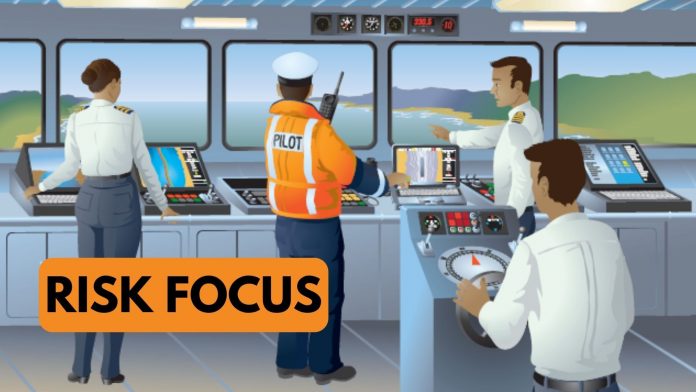A good working relationship with the pilot, effective Master Pilot Information Exchange at the start of the pilotage followed by well performing Bridge Resource Management during the pilotage passage, are important factors in a successful pilotage.
A small coastal cargo vessel had discharged in port and was shifting berth. The Master, controlling the vessel, was in visual and verbal contact with the officer on the bridge wing on the starboard side. Due to the construction of the vessel, they could see the crew members on the foredeck but not those on the aft deck – two ABs and a trainee.
A bulk carrier, loaded to maximum draught, was underway with the main engine running on half ahead. In calm weather, a half ahead engine on this vessel would give a speed of about 9 knots, but due to the very unfavourable weather conditions, the vessel’s speed was about 3 knots.
A bulk carrier was departing port with a pilot on the bridge to assist with the undocking and manoeuvre downriver. The operation was also assisted by two conventionally propelled tugs, one forward and one aft.




